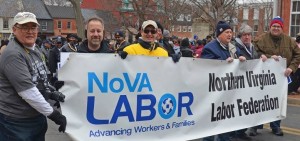The Reverend Martin Luther King compared himself to Moses who led his people out of slavery, saw the Promised Land, but never got there himself.
In April of 1968, Martin Luther King was in Memphis, Tennessee supporting a garbage workers’ strike. Dr. King cared about workers.
On the evening of April 3rd, Dr. King told the congregation, “I don’t know what will happen now.” He said he’d “been to the mountain top” and “seen the Promised Land” but “I may not get there with you.”
His promise, however, was that “we, as a people, will get to the Promised Land.”
Toward evening, that next day, April 4th, King stepped out on the balcony of the Lorraine Hotel in Memphis, Tennessee.
A rifleman shot a .30-06 caliber bullet that broke Dr. King’s jaw, cut through his neck and spinal cord, and the slug lay spent in his shoulder blade. King died.
Robert Kennedy said in Indianapolis to a crowd that had not yet heard of King’s death that we must “tame the savageness of man and to make gentle the life of this world.”
We have an annual March in Loudoun County to honor Martin Luther King. Savageness, however, still abides in the body politic.
It’s because of how he stood with the working man that Labor stands by Dr. King, and honors him each year, for what King meant to the working man and woman, no matter the color of any worker’s skin.
King couldn’t have agreed more with RFK in his own preaching and advocacy, that in order to reach the Promised Land, King declared, we must all challenge racism and economic exploitation.
We know today that the Supreme Court decision in Dred Scott, deciding that a man was property, was wrong. At least, we say it was.
King sought to reform an American system that values property and profit over persons, that therefore short-changes workers in terms of fair pay and benefits, and denies them credit, housing, education and many other opportunities – historically because of race – but, increasingly, almost anyone in the middle class, though some suffer worse, and that still means African Americans.
These abusive practices are a form of violence, economic violence, every bit as invidious and punishing as physical violence.
The Commonwealth of Virginia publishes as the principal reason for employers to move to Virginia that workers in our state have fewer rights, why they can be fired at will, and thus they cost less to an employer’s bottom line. Nor may workers organize to leverage their power to bargain collectively with employers for better pay or benefits.
Our political candidates talk compassion for workers but it’s “tough love” when they make light of feeding the poor, of housing, of a minimum wage, of job training, of helping the unemployed.
Robert Kennedy said to those in South Africa, still fighting apartheid, “It is from numberless diverse acts of courage … that human history is thus shaped. Every time a man stands up for an ideal, or acts to improve the lot of others, or strikes out against injustice, he sends forth a tiny ripple of hope, and crossing each other from a million different centers of energy and daring, those ripples build a current which can sweep down the mightiest walls of oppression and resistance.”
Each of us must act to bring down the walls of oppression and resistance in the Commonwealth, and right here at home in Loudoun County.
We owe it to King and ourselves to march not just in King’s honor on a single day, but to reform how we treat our workers.
True we have seen the Promised Land, but we’ve not yet arrived there.

